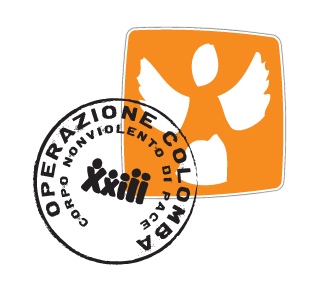Ein Hajla – Stories of resistance
Mahmoud sits on the deck chair. Hafez prepares baba ganush and dinner with the few kitchenware they brought with them. As evening approaches, a little breeze rises. Mahmoud looks at the fire, deep in thought. That uninhabited place is the treasure chest of a history of resistance.
“The smoke bombs, the violence, the lined-up soldiers, the screams, the evictions. Do you remember Hafez?
But what days have been! You could feel it in the air that people were tired, ready for something big. What a crowd, and what dreams we had. Entire families had settled here, from all over the West Bank. All here. To claim the end of the occupation.
Do you remember how we took the soldiers by surprise? We set up tents not far from a military base. And we lived there for almost a week, hundreds of people. They succeeded to chase us, but we resisted with all our strength.
What does remain of those days? Where is the spirit that led us to fight here, united? "
"It’s still here." Hafez looks at the two boys in front of him. They were there listening in awe, intrigued by those stories of resistance.
"Yalla ya shebab, it's time to get to work!". The boys take the spades and start to clean the interior of that mud and straw house built in that remote place.
“Do you see Mahmoud? This new generation of kids believes in change. Dreams of the end of apartheid. And refuses to sit back. Perhaps they will never get to see that ending, neither do we. But look how committed they are tonight. They know that fixing this house is an act of resistance. They replied to the owner's request for aid because they believe it is right to do so, because they see much further. They have learned what it means to resist the occupation, to prevent this place from being incorporated into a colony, or the military base just beyond for instance.
They know tonight's work is a small tile in this fight, but it's part of the fight.
Did you see their eyes listening to you, Mahmoud? Here is the spirit of those days, it never died. "
The village of Ein Hajla, not far from Jericho, falls within the so-called area C, as most of the Jordan Valley. It was abandoned by residents during the 1967 war; according to another version, it was evacuated brutally by the Israeli army.
Near the village, there is the monastery of Deir Hajla owned by the Orthodox Church. An Israeli military base was built on that land.
In 2014, the Popular Struggle Coordination Committee launched the "Mehl Al-Ard" campaign, reoccupying Ein Hajla, in rejecting the Israeli occupation policy aimed at annexing the Jordan Valley. A nonviolent action against the oppression of the Palestinian people, which was attended by activists from all over the West Bank who repopulated the site for about a week.
Abandoned houses were repaired and rebuilt, trees were planted, cultural activities were organized to raise awareness of the Palestinian situation.
The Israeli army reacted by denying the entry of food and water for activists, establishing checkpoints along the main highway to prevent others from joining the campaign. The action was repressed once the Israeli army broke into the village. The eviction was very violent and dozens of activists were beaten and ended up in the hospital because of the injuries sustained.


 OPERAZIONE COLOMBA
OPERAZIONE COLOMBA
